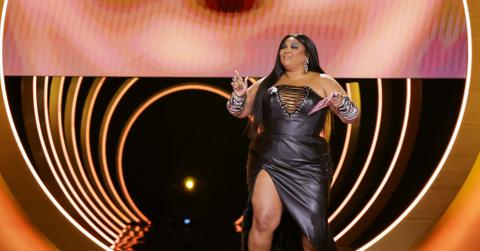
Lizzo’s Influence on Body Positivity and Mental Health
By Alan BlakeFeb. 17 2024, Published 10:32 p.m. ET
“I do have anxiety and it is an interesting part of my experience. My heart is racing and my brain is firing off and I’m just making all these jokes and then I’m like, actually spiraling. The louder and funnier I am; you should probably ask me if I’m okay, Lizzo told British Vogue.
Lizzo, born Melissa Viviane Jefferson, is inarguably one of the most impactful artists of the modern era. She burst into the limelight in 2013 with her debut album “Lizzobangers” which packaged with catchy tunes, quickly racked up positive reviews, and earned her a diehard fanbase.
However, while her influence in the music realm is undeniably huge, it goes beyond entertaining. Her unique style and messages of empowerment have had a significant impact on societal norms and perceptions of body positivity.
A Voice for the Underrepresented
Although Lizzo’s music totally rocks, her unshakeable confidence and unapologetic sense of self are among her most outstanding traits. As a result, the 35-year-old artist is now the voice for the underrepresented individuals in an entertainment industry typically known to promote a narrow definition of beauty. Her messages, both in her songs and on social media platforms constantly push for inclusivity and body positivity.
The artist also uses every avenue she gets to encourage self-love, individuality, and self-acceptance in a world where societal beauty standards tend to unintentionally promote self-loathing.
Standing Against Conformity
In a society where people live for the likes and the followers, Lizzo has remained adamant against the pressure to conform ever since she burst onto the music scene. The multiple-time Grammy Award winner uses her music, performances, and advocacy to emphasize the essence, and power of wholly embracing one’s self.
Struggling With Mental Health
In addition to self-love and self-acceptance, Lizzo has been at the forefront of de-stigmatizing mental health. The singer although confident and huge on self-love openly admits to having struggled with mental health. She says the lack of representation growing up had her thinking something was wrong with her. It didn’t help that she was constantly bullied by her peers for being plus-sized.
“As a big girl, fashion wasn’t available for my body type, so I had to get creative. If it wasn’t made for me, I made it for me,” Lizzo said in an interview with Vogue’s Forces of Fashion.
Today, Lizzo regularly engages in open conversations about mental health and confidently shares her struggles with anxiety and depression not for attention, but to validate her fans going through similar situations by letting them know they aren’t alone. As a result, her vulnerability to mental health struggles not only offers a sense of understanding but also encourages others to seek help when needed.
A True Mental Health Champion
Having struggled with no help, Lizzo understands the essence of de-stigmatizing mental health topics and uses her voice and platforms to advocate for increased support, and the democratization of mental health support resources.
And while openly talking about her mental health struggles has had a significant impact on how society views these conditions today, Lizzo doesn’t stop at that. She regularly donates to and promotes mental health initiatives on her platforms to assist those championing mental health courses to raise even more awareness. The artist also collaborates with lawmakers to raise awareness of the urgency, and prevalence of mental health issues, particularly among the youth.
A Voice for the Minority and an All-Round Icon
As a marginalized individual, Lizzo also consistently uses avenues available to her to represent groups of people that have been overlooked and disregarded by societal standards throughout history. She constantly shouts out her love for Black women in her music videos and shows, places trans, and curvy dancers on the stage alongside her during live performances, and campaigns against body shaming at every opportunity she gets.
Her unapologetic approach to self-expression, commitment to uplifting others, and powerful messages resonate with people from every walk of life, inspiring them to embrace and celebrate their individuality. The Good-as-Hell singer is consequently considered a body positivity icon, mental health advocate, and a symbol of self-love and self-acceptance.

